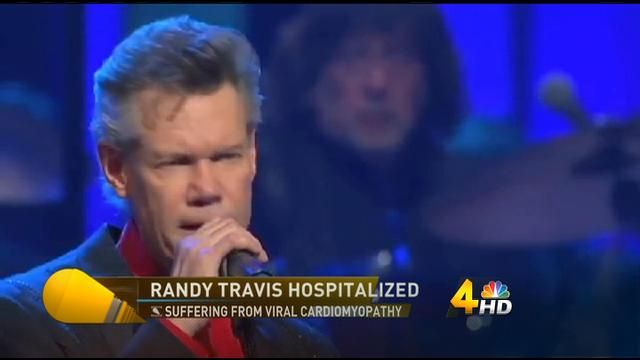Dr. Baker fills you in on what to expect after a heart attack.
Am I at risk for Cardiomyopathy?

By now, you’ve probably heard about Randy Travis, the famous country singer who was admitted into the hospital on Sunday to receive treatment for cardiomyopathy. Here at Carson Tahoe, we’ve been getting lots of phone calls from people asking about cardiomyopathy and what the signs, symptoms, and treatments are. So, we caught up with Carson Tahoe Health Interventional Cardiologist, Dr. Nathan Ho, to answer your most frequently asked questions about cardiomyopathy…
What is cardiomyopathy?
Cardiomyopathy is a disease that weakens and enlarges your heart muscle. Cardiomyopathy makes it harder for your heart to pump blood and deliver it to the rest of your body. Cardiomyopathy can lead to heart failure and sudden death.
What are the signs or symptoms of cardiomyopathy?
Symptoms of cardiomyopathy may include: breathlessness with exertion or even at rest, swelling of the legs, ankles, and feet or bloating of the abdomen due to fluid buildup. Other symptoms may be vague such as fatigue, irregular heartbeats, dizziness or lightheadedness. These signs and symptoms tend to get worse unless treated. In certain people, this worsening happens quickly, while in others, cardiomyopathy may not worsen for a long time. Nonetheless, this needs to be addressed and addressed by your physician. See your doctor if you have one or more of the signs and symptoms as it may be associated with cardiomyopathy.
What are the risk factors associated with a cardiomyopathy diagnosis?
Possible causes or risk factors for cardiomyopathy include: long-term high blood pressure, heart tissue damage from a previous heart attack, long term rapid heart rate, metabolic disorders (such as thyroid disease or diabetes, nutritional deficiencies), excessive use of alcohol over many years, abuse of polysubstances such as cocaine, and genetic conditions to name a few. Sometimes causes of the cardiomyopathy are unknown. Your doctors can help and are able to identify some contributing factors.
How is cardiomyopathy treated?
If you’re diagnosed with dilated cardiomyopathy, your doctor may recommend medications, surgically implanted devices (defibrillators/ pacemakers) or a combination of both. Usually, medications are the first line. Some medications include “blood pressure medications” that are intended to strengthen your heart. Other medications are intended to decrease the work of the heart. If medications don’t work, you may need surgery or a medical device to treat your condition. Devices include defibrillators to prevent sudden death.
How can it be prevented?
You can help reduce your chance of heart failure by avoiding some of the conditions that can contribute to a weakening of the heart. These include alcohol or cocaine abuse or not getting enough vitamins and minerals. Additionally, it is advantageous to control high blood pressure with diet and exercise. Let your doctor know if you have a family history of the condition. If cardiomyopathy is diagnosed early, treatments may prevent the disease from worsening or prevent sudden death.
Is it life-threatening?
Cardiomyopathy can be life-threatening. When your heart is unable to pump enough blood to meet your body’s needs, you may develop heart failure. This condition is compounded by the fact that when the heart gets enlarged, the valves of the heart leak and cause backflow of blood. Further, this weakened state increases the risk of blood clots form in your heart. Moreover, cardiomyopathy can lead to abnormal heart rhythms. These abnormal heart rhythms can result in fainting or, in some cases, sudden death if your heart stops beating. Left untreated, heart cardiomyopathy can be life-threatening.
Can a patient be screened for cardiomyopathy?
Cardiomyopathy can be screened for. There are several tests that we can perform to evaluate whether you have cardiomyopathy. These tests include ultrasounds of the heart, electrocardiogram, chest x-ray, cardiac MRI, blood tests, etc. These studies will allow your physician to identify and treat the different types of cardiomyopathy. Some inheritable types of cardiomyopathy and genetic conditions predispose you to get cardiomyopathy which puts you at risk for sudden death. If you have a family history of this condition or a history of sudden death, let your doctor know.
To schedule an appointment or for more information, please visit www.carsontahoeheart.com or call (775)445-7650.



